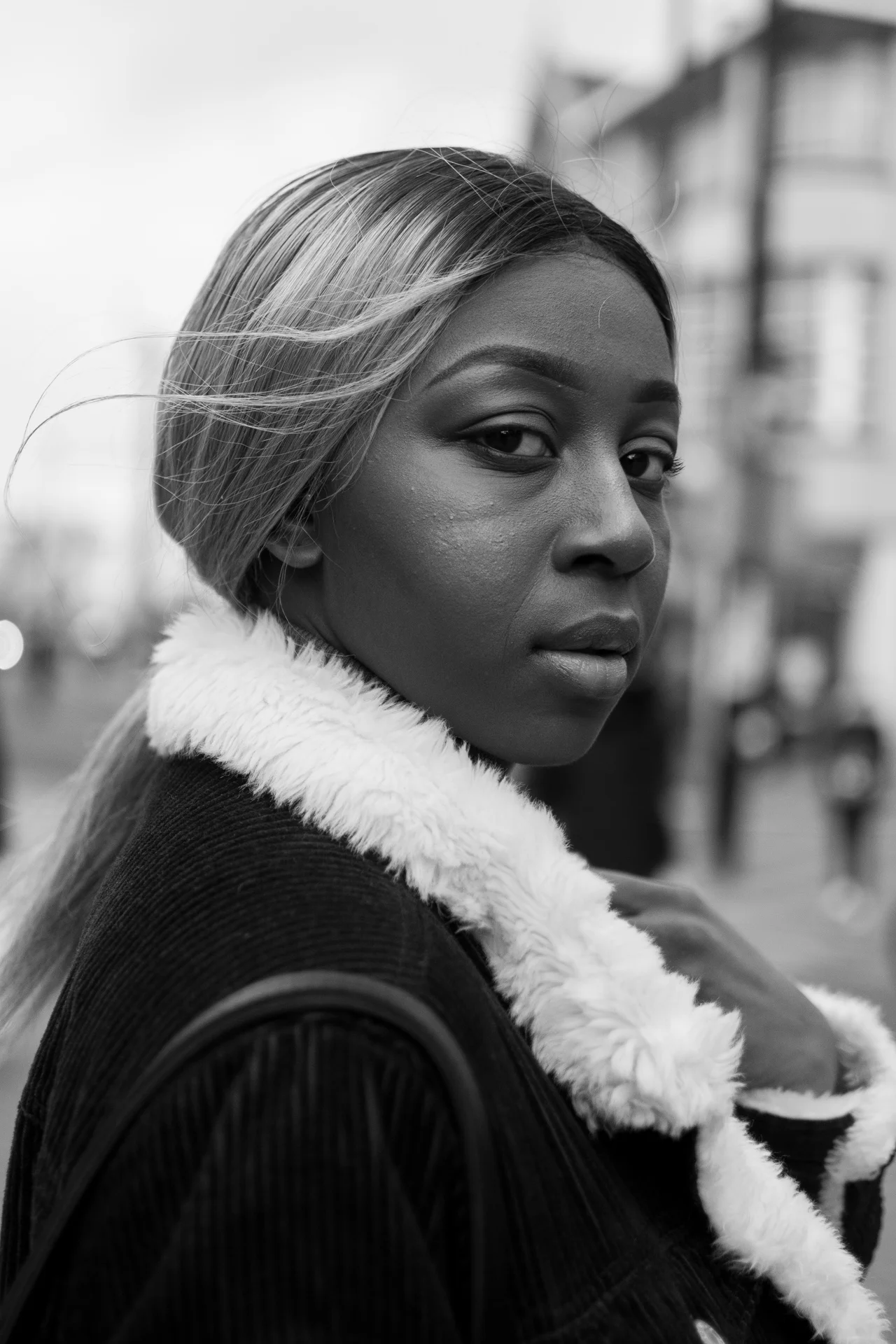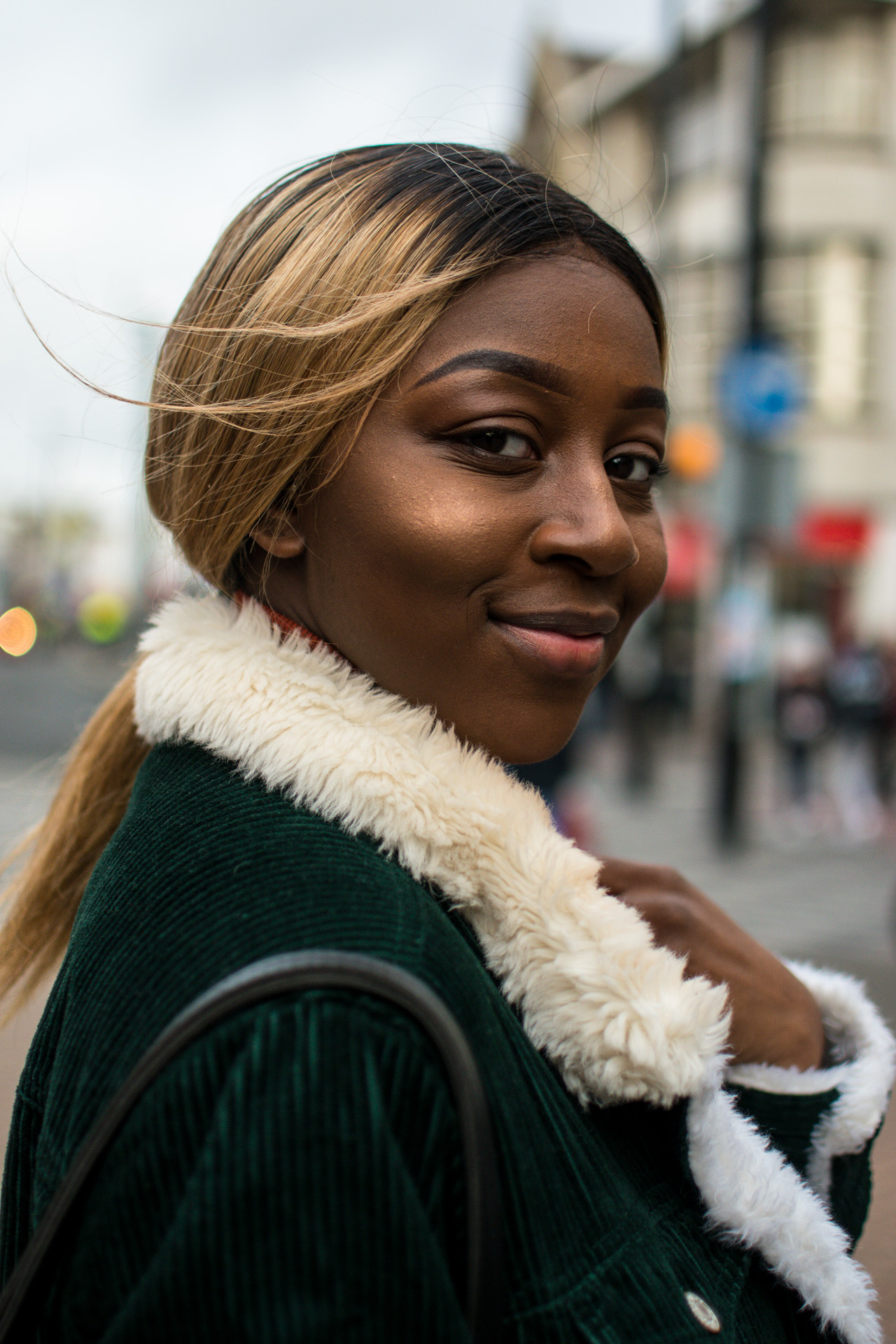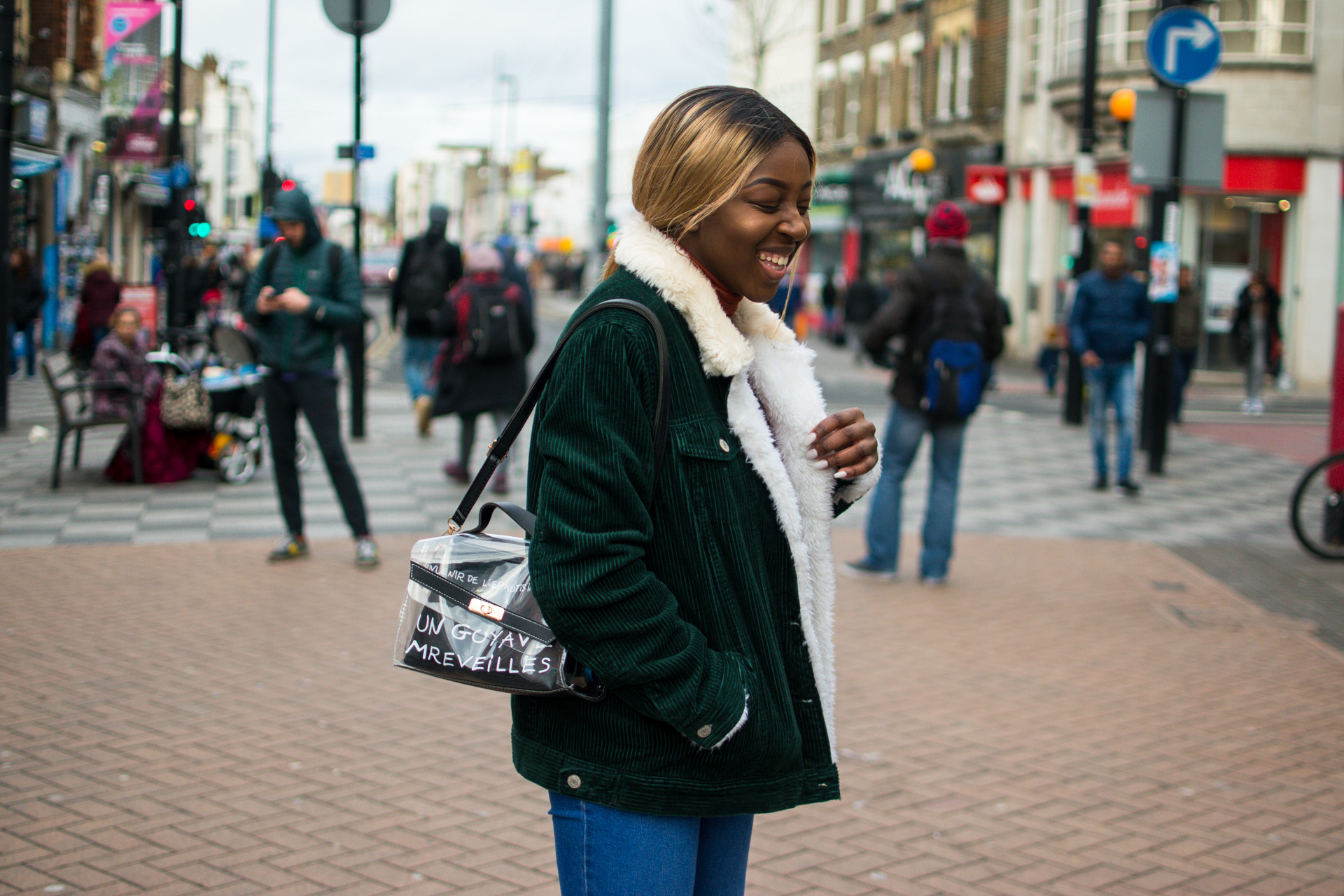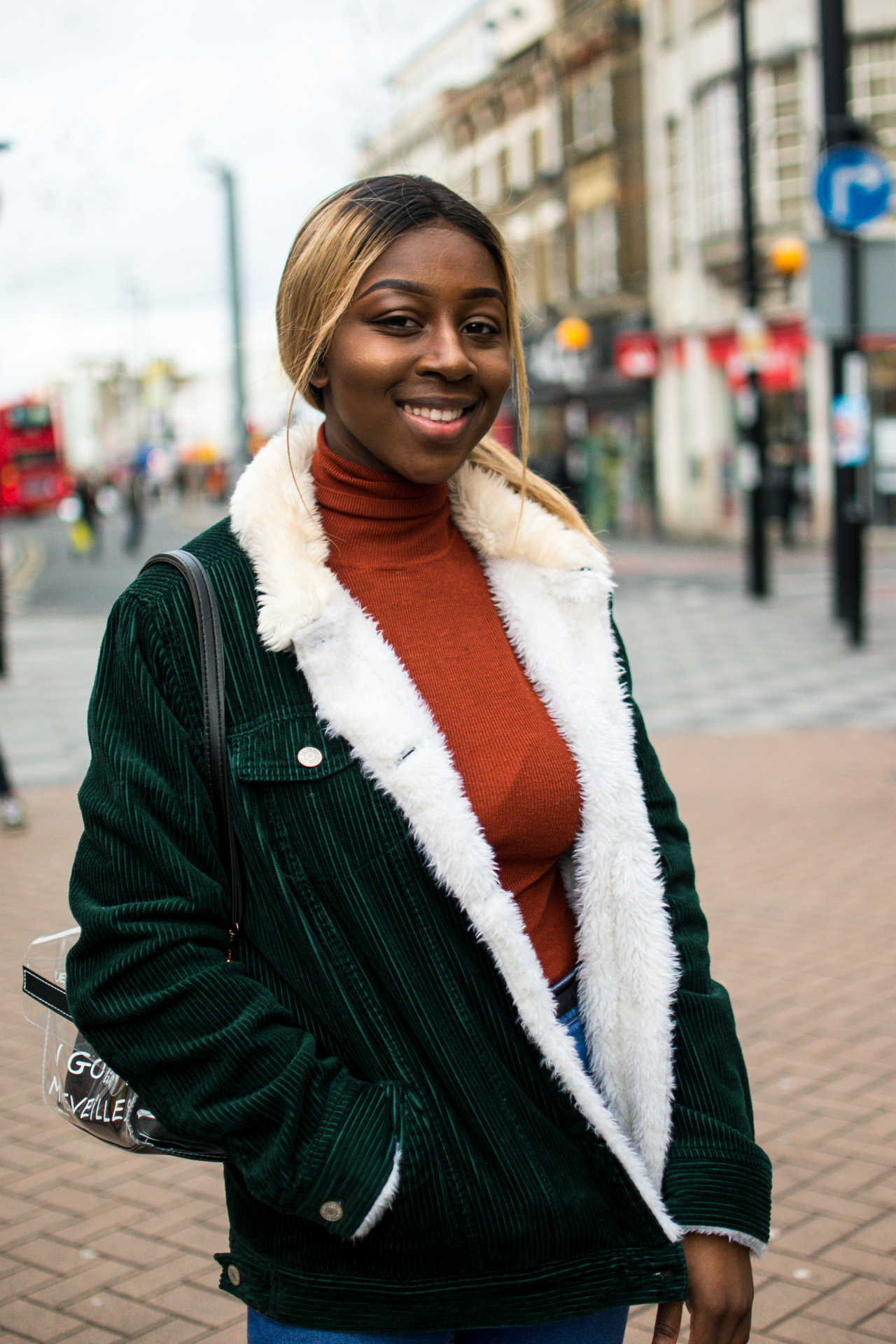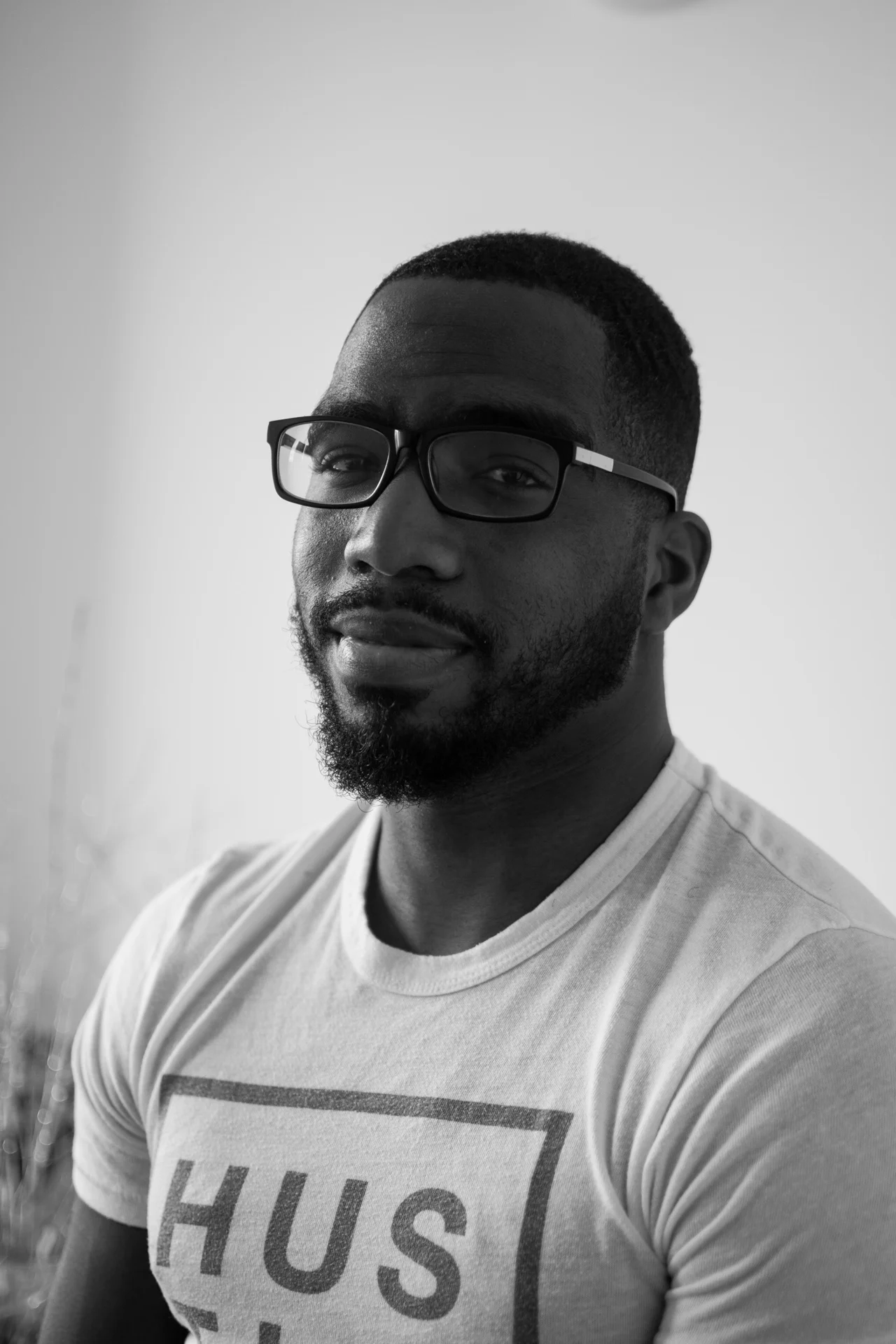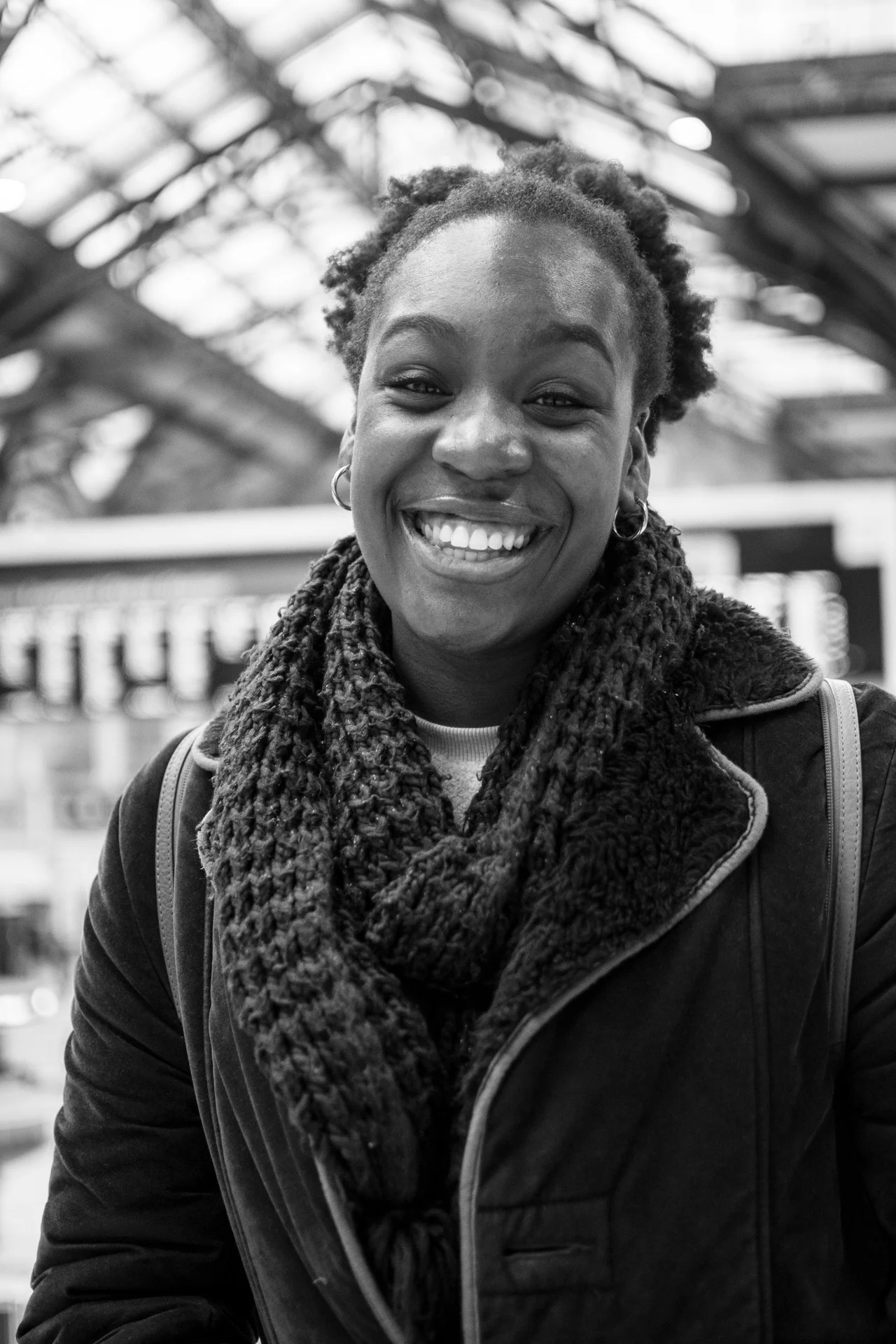Stacey
Stacey, 22
Nigerian ethnicity: Igbo
City/County grew up in: Bern (Switzerland), Bristol
City/County of residence: Bristol
*audio below
Describe your heritage
My heritage is very mixed. I was born in the States in New York. I grew up in Switzerland [and Bristol], but I was born to Nigerian parents. The rest of my family is Nigerian. I’ve never actually lived in Nigeria, I’ve grown up in the Western world my whole life, but I live in a very African household.
What to you, makes you Black British Nigerian? How do you define it?
To me what makes me Black British Nigerian is the sense of community, and by that I mean language, food, just the culture that you’re surrounded in because I think living in a Western society for me, the Nigerian part of me can get washed down very easily. But when I come home, my parents are speaking Igbo, I’ve grown up understanding Igbo even though I can’t fluently speak it, but I can understand it completely. The food that we have at home is very Nigerian, so that to me is what makes me British Nigerian.
What challenges do you/have you faced that relate to your identity as a Black British Nigerian?
To me the challenges that I feel I have faced is not knowing where I fit in in society. Even growing up in school, I had lived in the Western world my whole life but to everybody it seemed that I was very different, and I think it was based on my parents coming and picking me up and maybe dressing differently, looking differently. I knew I was African, but at the same time I am just like everybody else. So I’ve always had an identity crisis. And then growing up in Switzerland, that’s a predominantly White area, but there was a strong Black community there. So I’ve always been lost in terms of identity and who I am, but I think growing up I’ve done a lot of projects and work that focus on identification, and it’s all about how we self-identify ourselves and not how anybody else is going to identify you.
What do you love about being Black British Nigerian?
What I love about being Black British Nigerian is the sort of mixture. I, when I’m at home I have a (what my mum says), is in a very Nigerian accent, and then the moment I leave that door, it’s like it completely switches, then the Bristolian in me really comes out when I’m talking. And then when I’m surrounded by other Nigerians in a British environment, those little colloquial [terms], and those little quotes and everything that you hear from your parents or you hear from Nollywood films, they suddenly come out, and then you feel like you have that community even though you’re not in Nigeria. I think especially for 2nd generation children, it’s so important to have that, so that’s what I love. At first I was scared and unsure about myself, about being dual nationality, but at this point in my life and further on, I stress so much how beneficial it is, and to be able to switch from one thing to another is a positive, not a negative.
Do you think this country values your identity?
That’s an interesting question. Yes and no. I feel like the community I’m in, in Bristol values it. Not the country as a whole. Even going into university and being in a White institution, I could really see the way that we were treated despite…I mean technically we are all British, but we have that Nigerian identity, and then being seen as not from here, or foreigners, or as that minority in the corner. So I don’t think that we’re valued that much in society.
What does the future look like for Black British Nigerians - what are your hopes for us?
My hopes for us as British Nigerians is…I think it is just to take over the world. And by take over the world, I mean we all have different crafts and different strengths, whether it’s art, whether it’s business, science or finance, but for us to be in position where other British Nigerians or dual nationality can see “Okay I’m struggling with so and so but I have value and I can make a difference, and I’m not completely defined by what everybody else sees me as”. And then in turn encouraging the next generation and so forth. But I definitely think that we have to start within ourselves and appreciate who we are and know that it’s not a bad thing, and then excel in our craft so that other British Nigerians can see “Okay. I got this. I should be happy with where I’m from, and I’m gonna make a difference”. Yeah.
